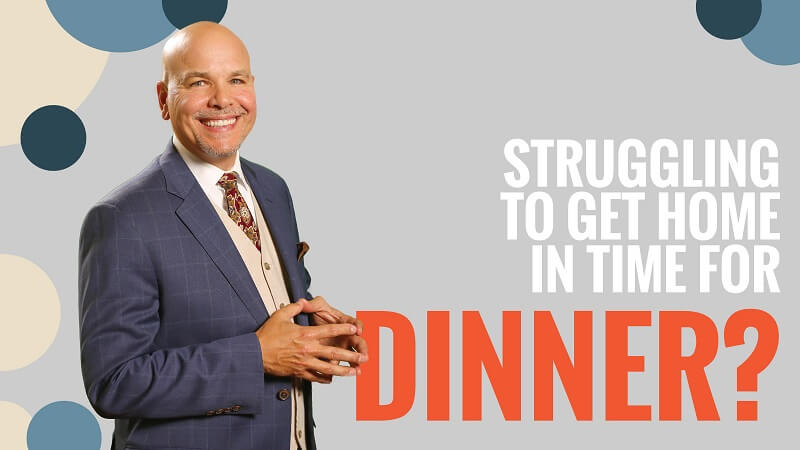Mentoring Investment in Glibert, Arizona
Do you feel the need for mentoring in running your law firm? This article will discuss mentorship for in-house attorneys from the perspectives of both the mentor and the mentee, and also looks at how investing in mentoring can transform your practice.
In-house attorneys are often sought for advice and solutions to problems that Arizona law firms have not yet shown to be tried and tested. The seriousness and speed with which this work must be completed have placed immense pressure on in-house attorneys to perform in creative ways, elevating their legal skills and knowledge to new heights. This may lead to a lot of innovation and success in new work.
Mentoring is a solution not just for when things are difficult, but also for when everything is going well and you want to capitalize on that momentum through investing in yourself as well as your personal growth.
Richard James, Your Practice Mastered, LLC is an industry leader that helps clients in growing their small law firm. We are here to help you in moving ahead of your competition since we understand how growth can be difficult to achieve for a small law firm.
Richard created Partners Club, a private mastermind group of Entrepreneurial Attorneys, to be a place where when you can personally consult and ask a member about marketing, sales, and business management. By joining the Partners Club program, attendees will have benefits such as access to your peers with regular updates on what is happening in the industry, legal trends, marketing in general, consulting for law firms, and more.
Give us a call right now for more information on the FREE MASTERCLASS that we offer!
The Mentor
We firmly believe that there's no such thing as a stereotyped fit for a good mentor. There are no age, title, PQE, or seniority considerations. Mentors should be representative of the in-house legal profession's diversity. As an example, a lawyer transitioning from private practice to in-house for the first time will not need a head of general or legal counsel. Instead, they will want someone who has just successfully shifted from private practice and can support them with their own career shift. On top of the popular senior-to-junior mentoring, there are various types of mentoring. As an example:
- Mentoring by peers. This is appropriate for those at comparable levels or stages in their careers. Peer mentoring might involve skills training, general support, guidance, or career goals.
- Reverse mentorship. This is appropriate for a senior legal practitioner who wants to learn about a generational concept or new systems and technologies.
- Situational mentorship. This is ideal for a specific project, goal, or talent.
A Good Mentor is Someone Who…
Every mentor will bring some benefits to the table based on their own particular experiences or perspectives. A good mentor is a person who is willing to do the following:
- Give up time, usually a few hours each month.
- Be a good listener and encourage employee engagement.
- Share their own experiences, ideas, and lessons learned.
- Be a trustworthy confidant and, if necessary, a sanity check.
We appreciate that a mentor is offering their time for free to a stranger or a regular employee, but a mentor could wonder what benefits it brings for them. Mentors, on the other hand, have reported that the experience has been tremendously rewarding, not just personally but also in more tangible terms. As an example:
- Building their resume.
- Providing experience in leadership and management.
- They are increasing their network.
- Providing them with a new perspective on their own career.
Characteristics of the Effective Mentor
-
Inspire
Mentors can encourage mentees and guide them in directions that go beyond their initial goals by providing an example. It is critical to encourage mentees to find meaning in what they want to achieve and to help them create a future vision.
-
Be a Good Listener
Mentees who believe they have been fully heard and understood are signs of good listening. Mentees are more likely to feel welcomed and place their trust in the mentoring relationship as a result. Remembering or expressing interest in concerns that mentees have earlier raised is one kind of active listening.
-
Discuss Similar Experiences
Mentors are not supposed to be superhuman. Most of the time, they are adults who have been in circumstances comparable to those that their mentees are presently in. Mentors may help mentees in feeling more empowered to cope with their own issues by sharing their own experiences.
-
Give Constructive Correction in a Positive Way
It's not usually easy to accept criticism positively. Hearing it in a motivational and encouraging tone, on the other hand, might help mentees take and use criticism more quickly.
-
Use Positive or Neutral Language to Describe Mentees
Mentees must have trust that the conversations will be kept private and that the mentoring relationship would be mutually supportive. When speaking to others about mentees, mentors should only provide positive or neutral remarks.
The Mentee
Having a mentor is often reserved for the highest levels of senior management. Mentoring is an unquestionable rite of passage and a crucial tool in professional growth, and it is included in MBAs and senior leadership mentoring programs. However, if mentoring is so vital to top executives and to the next generation of leaders, why shouldn't we start earlier? And why is mentorship even more scarce in the in-house legal community? Having a mentor or getting involved in mentoring programs is not a sign of weakness! It is, in fact, an investment in your future.
The phrases “coaching” and “mentoring” are frequently interchanged, however, they don't provide the same service and should not be used interchangeably. There's also a distinction to be drawn between “counseling” and “sponsoring”. Confusion in terminology can make finding the right solution difficult, and it usually leads to people giving up on finding one. Most regular folk don't think about seeking out a mentor unless they need something. Because they are either in transition, trapped in a rut or wish to move forward. It's necessary to keep in mind that having a mentor may be useful in both good and bad times. When everything is going well, capitalize on that feeling or momentum by maintaining a relationship with your mentor.
Prioritize Personal Development
Mentoring does not equate to additional legal training. Rather, it provides mentees access to networks, a variety of perspectives, tips on how to handle challenging situations, and more. For instance, do you:
- Understand financial terminologies?
- Know how to create a business case for more employees in your team?
- Present face-to-face with the auditing committee?
- Handle an ambitious workforce that expects salary raises and promotions within a year's time or they will leave?
All of these challenges are not studied in law school but they can be addressed with the right mentoring program.
Finding a Mentor
When you decide you want a mentor or a mentoring program, think about your professional goals, where you are now in your career development and where you want to go, and, lastly, what you want to accomplish via mentoring relationships. After carefully considering these questions, you will be better positioned to find your ideal mentor or mentoring program. Formal mentoring programs provide you the option of having either as much or as little structure in the way of goal setting.
How to Be a Good Mentee
Take the Initiative
Start strong by communicating often with your mentor. Organize meetings (think if they will be in person initially, then later by Skype or email follow-ups) and arrive armed with ideas for what you want to discuss or receive from your mentoring relationship.
Participate Actively and See Things Through to the End
Get in the moment, so do not be sidetracked by your office phone, and pursue action points that you genuinely want to learn from. You'll both be busy, so make the most of this time and arrive ready for your next meeting.
Be Truthful
If you've determined that you can work with and trust your mentor (which generally happens fast), then be open about your objectives, problems, and difficulties because then your mentor can ask the right questions.
Be Realistic
Your mentor isn't a genie in a bottle. They serve as a sounding board, confidant, and safe haven for your professional progress. You cannot gain promotion through your mentor, and you cannot provide KPIs to your mentor! There is a distinction to be made between mentoring and coaching (and counseling). It is critical to state your expectations clearly from the start.
Show Appreciation
We've heard many testimonies from our members about how a workplace mentoring program has improved their lives. Acknowledge your mentor if they have had a beneficial influence on you. They are freely offering you this time in return for nothing. It is important to express gratitude, then pay it forward by being a mentor yourself.
Learn How to Improve Your US Law Firm Management
Richard James, Your Profession Mastered, would love to teach you how to properly manage your US law firm for a more successful practice and show you how investing in mentoring can transform your practice and increase employee retention.
Our Partners Club will give you all the important information you need to learn how to run a small business like a pro, just like you are a pro at being a lawyer. With the knowledge you gain through our program, you can run a more profitable and efficient small business, allowing you more time and financial flexibility to focus on the things that mean the most to you.
Take the first step and schedule your FREE MASTERCLASS now!
Richard James
As a result of his track record for achieving what most describe as “phenomenal” growth rates for his clients, Richard James, CEO of Automated Business Results, LLC, is quickly gaining a national reputation as “the Legal Systems Expert.” His secret to success is simple. Richard has devised a seven step system for designing and implementing automated marketing systems that grow your business FAST. If you’re looking to develop a practice that supports your lifestyle rather than completely undermining it, call Richard James today.






